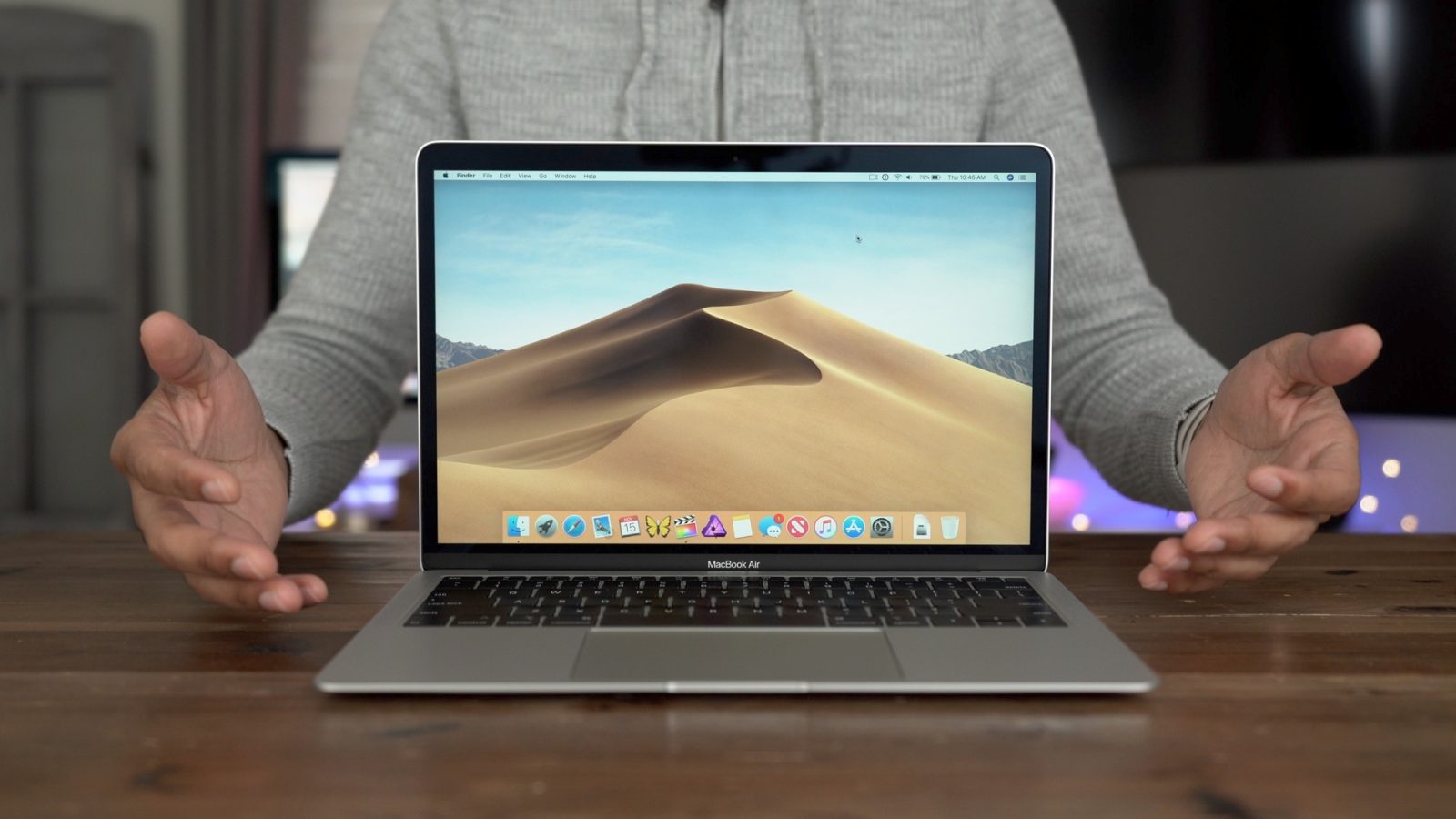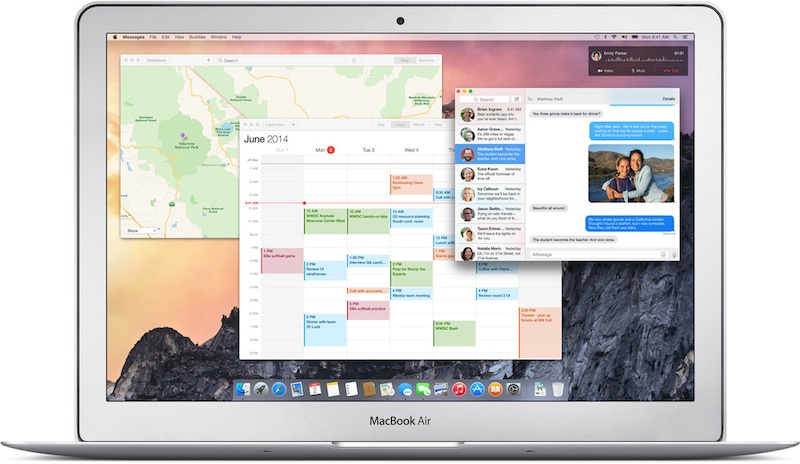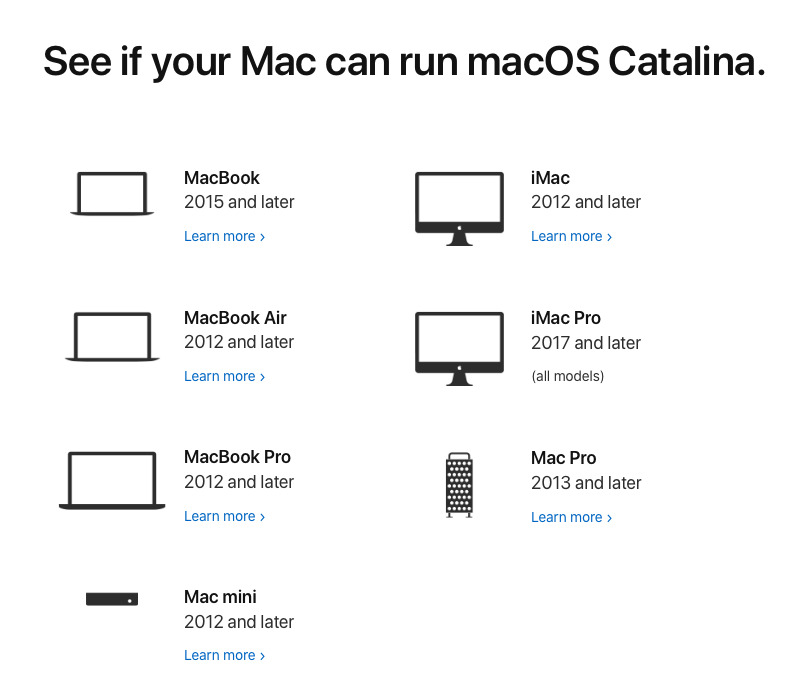Hello daschrislydon,

Designed with an ultrathin display, the Apple MacBook Air features 1366 x 768 resolution on the 11' and 1440 x 900 resolution on the 13'. Combined with the LED backlighting, colors appear bright and vibrant from almost any angle, making the MacBook Air ideal for anyone editing photos, creating a presentation or just watching a movie. The Adobe® AIR® technology enables developers to create and package cross platform games/apps for major platforms like iOS, Android, Windows and Mac OS. Build stunning, blazing-fast cinematic 2D and 3D games for the browser, iOS, and Android™. Use fully accelerated GPU rendering, which leverages. MacOS is the operating system that powers every Mac. It lets you do things you simply can’t with other computers. Use Apple Pay to make purchases on the web in Safari with Touch ID on MacBook Pro and MacBook Air. Map out new destinations from your desktop, with gorgeous 3D city views like Flyover, point-to-point directions,.
Thanks for reaching out to the Apple Support Communities! From your message I can see that you have erased the 2011 MacBook Air and are looking to upgrade the OS X from Lion.
You're correct that you need to upgrade to OS X El Capitan before you can upgrade to macOS High Sierra.
Since you're unable to reinstall the Mac OS X Lion through Recovery, see if you can boot into Internet Recovery. To access Internet Recovery, restart your MacBook Air and hold down Option + Command + R. This will allow you to reinstall OS X Lion.
By reinstalling Lion you'll have access to the App Store and you can follow the steps to upgrade to OS X El Capitan: How to upgrade to OS X El Capitan.
Once you have OS X El Capitan running, you can then upgrade to macOS High Sierra: How to upgrade to macOS High Sierra.
Mac Air 13 Inch
If you're unable to reinstall OS X Lion, you'll need to have access to another Mac to be able to create a bootable USB drive for El Capitan. This article will provide you with the steps to take to create a bootable installer: How to create a bootable installer for macOS.

All the best!
Feb 12, 2020 6:35 AM
How to get updates for macOS Mojave or later
If you've upgraded to macOS Mojave or later, follow these steps to keep it up to date:

- Choose System Preferences from the Apple menu , then click Software Update to check for updates.
- If any updates are available, click the Update Now button to install them. Or click ”More info” to see details about each update and select specific updates to install.
- When Software Update says that your Mac is up to date, the installed version of macOS and all of its apps are also up to date. That includes Safari, iTunes, Books, Messages, Mail, Calendar, Photos, and FaceTime.
To find updates for iMovie, Garageband, Pages, Numbers, Keynote, and other apps that were downloaded separately from the App Store, open the App Store on your Mac, then click the Updates tab.
To automatically install macOS updates in the future, including apps that were downloaded separately from the App Store, select ”Automatically keep my Mac up to date.” Your Mac will notify you when updates require it to restart, so you can always choose to install those later.
How to get updates for earlier macOS versions

If you're using an earlier macOS, such as macOS High Sierra, Sierra, El Capitan, or earlier,* follow these steps to keep it up to date:
- Open the App Store app on your Mac.
- Click Updates in the App Store toolbar.
- Use the Update buttons to download and install any updates listed.
- When the App Store shows no more updates, the installed version of macOS and all of its apps are up to date. That includes Safari, iTunes, iBooks, Messages, Mail, Calendar, Photos, and FaceTime. Later versions may be available by upgrading your macOS.
Air Display Mac Os Catalina
To automatically download updates in the future, choose Apple menu > System Preferences, click App Store, then select ”Download newly available updates in the background.” Your Mac will notify you when updates are ready to install.
* If you're using OS X Lion or Snow Leopard, get OS X updates by choosing Apple menu > Software Update.
How to get updates for iOS
Learn how to update your iPhone, iPad, or iPod touch to the latest version of iOS.
Learn more
Adobe Air For Mac Os X
- Learn how to upgrade to the latest version of macOS.
- Find out which macOS your Mac is using.
- You can redownload apps that you previously downloaded from the App Store.
- Your Mac doesn't automatically download large updates when it's using a Personal Hotspot.
